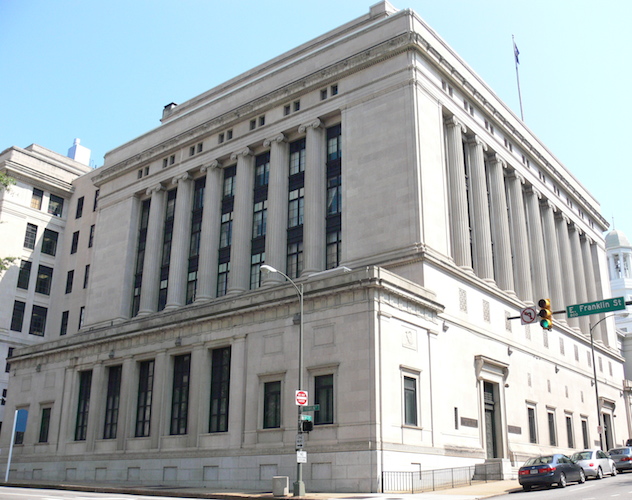 The Virginia Supreme Court recently issued a ruling relating to missing wills and the legal standard courts must apply when an original will cannot be found and therefore an executor seeks to probate a copy of the will. While the case does not necessarily make new law, it does clarify that the proponent of the non-original will is not required to prove why the original will was lost.
The Virginia Supreme Court recently issued a ruling relating to missing wills and the legal standard courts must apply when an original will cannot be found and therefore an executor seeks to probate a copy of the will. While the case does not necessarily make new law, it does clarify that the proponent of the non-original will is not required to prove why the original will was lost.
First, some background: under Virginia law, a party seeking to probate a will must probate the original will, and not a photocopy. In the vast majority of instances, this does not pose a problem. However, in some instances, no one can locate the original will. Virginia law provides that in those situations, a proponent of a non-original will may petition the circuit court to order that a copy of the will be admitted to probate.
The party that petitions the court to admit to probate a copy of the will must overcome a legal presumption that arises by virtue of the fact that the original will cannot be located. If the will was last known to be within the custody of the testator (the person whose will it was), then there is a legal presumption that the testator destroyed it with the intent to revoke it. Brown v. Hardin, 225 Va. 624, 626 (1983). That presumption may be rebutted by a proponent of a non-original will if the proponent can prove by clear and convincing evidence that it was not destroyed by the testator with the intent of revoking it. Id. at 637.
When the Virginia Supreme Court confronted this issue in Edmonds v. Edmonds, 2015 WL 3505183 (2015), it examined a situation where the decedent was survived by his wife, his daughter from their marriage, and a son from a prior marriage. The decedent executed a will in 2002 that intentionally omitted his son. When the decedent died, the original 2002 could not be found; only photocopies of it were located in his filing cabinet in his office.
The decedent’s wife filed a petition in the Arlington Circuit Court to probate a copy of the will. The son contested the petition because if the copy of the will was not admitted to probate, the decedent would be deemed to have died intestate (i.e., without a will), and therefore pursuant to the statutory intestacy scheme, the son would receive a portion of the decedent’s estate.
At the trial, the wife called numerous witnesses who testified that the decedent had told them that he did not want to leave any portion of his estate to his son, and that he intended to leave his entire estate to his wife. The trial court ruled in favor of the wife, holding that she had proved by clear and convincing evidence that the 2002 will was not revoked, and that accordingly the copy of the will would be admitted to probate.
 On appeal to the Virginia Supreme Court, the parties agreed that when a will in the testator’s custody cannot be found after his death, there’s a presumption that he destroyed it with the intent to revoke it, which can only be overcome by clear and convincing evidence that it was not revoked. They disagreed, however, on the amount of proof that a proponent of a will must offer in order to meet the clear and convincing standard. The son argued that it order to meet the burden of proof of clear and convincing evidence, the proponent of the will must prove some other cause for the disappearance of the will. The wife argued that she was not required to prove the exact cause for the disappearance of the will, and that she could meet her burden of proof by evidence that showed that her husband did not intend to revoke the will, and that he wanted his estate to pass to her upon his death.
On appeal to the Virginia Supreme Court, the parties agreed that when a will in the testator’s custody cannot be found after his death, there’s a presumption that he destroyed it with the intent to revoke it, which can only be overcome by clear and convincing evidence that it was not revoked. They disagreed, however, on the amount of proof that a proponent of a will must offer in order to meet the clear and convincing standard. The son argued that it order to meet the burden of proof of clear and convincing evidence, the proponent of the will must prove some other cause for the disappearance of the will. The wife argued that she was not required to prove the exact cause for the disappearance of the will, and that she could meet her burden of proof by evidence that showed that her husband did not intend to revoke the will, and that he wanted his estate to pass to her upon his death.
The Virginia Supreme Court reviewed its prior decisions on this issue, and reaffirmed that “a proponent of a missing will is not required to specifically prove what became of the missing will.” Id. at *8. The Court explained that “[i]n some cases, the proponent may present evidence regarding what could have happened to the will; and in other cases, there may be no evidence to explain why the will is lost or missing. The facts of each case are different, and the evidence in each case will therefore also be different. What remains the same is that each proponent of a missing will must prove, by clear and convincing evidence, that the testator did not destroy the will with the intention of revoking it.” Id.
The Virginia Supreme Court’s ruling does not necessarily break any new ground. It cited numerous prior decisions that stood for the proposition that a proponent of a non-original will does not need to specifically prove what became of the original will. That makes intuitive sense because to require a proponent of a non-original will to prove how the original will was lost is in large part asking the proponent to prove a negative. In other words, how is it possible, in many cases, to prove how something was lost? The very reason that it was lost is because no one knows that happened to it. In sum, while the Virginia Supreme Court’s ruling does not announce any novel rule, it should serve to be the nail in the coffin to any future argument that a proponent of a non-original will must specifically prove what became of the original will.



